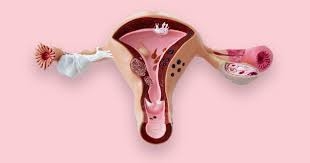Premature Ovarian Insufficiency (POI)

Premature Ovarian Insufficiency (POI), often referred to as premature ovarian failure, is a medical condition where the ovaries stop functioning correctly before the age of 40. This early decline in ovarian function leads to a cessation in the production of eggs as well as key hormones like estrogen and progesterone. Consequently, individuals with POI may experience symptoms akin to those of menopause, including irregular menstrual cycles or complete absence of menstruation, known as amenorrhea. The implications of POI extend beyond menstrual irregularities; it can result in infertility and various health concerns stemming from the deficiency of reproductive hormones. The origins of POI can be complex, involving a combination of genetic, autoimmune, and environmental factors.
Causes of Premature Ovarian Insufficiency
Several underlying causes contribute to the development of POI. Genetic factors play a significant role, with conditions like Turner syndrome and fragile X syndrome being linked to chromosomal abnormalities that adversely affect ovarian function. A family history of early menopause or POI can further increase an individual’s risk, suggesting a hereditary component to the condition.
Autoimmune disorders are another contributing factor, where the immune system mistakenly targets and damages ovarian tissue. This autoimmune response can lead to diminished ovarian function and hormonal production, exacerbating the symptoms of POI.
Environmental and lifestyle influences also come into play. Treatments such as chemotherapy and radiation for cancer are known to damage ovarian tissues, potentially leading to POI. Additionally, exposure to specific chemicals or environmental toxins may contribute to ovarian impairment. Surgical factors, particularly those involving the removal or damage of ovarian tissue during pelvic surgeries, can also result in the onset of POI.
In many instances, the exact cause of Premature Ovarian Insufficiency remains elusive, and the condition can manifest without any identifiable underlying reason.
Predisposing Factors
Certain predispositions can increase the likelihood of developing POI. A genetic predisposition is notable, especially among those with a family history of POI or early menopause. The presence of autoimmune diseases, such as thyroid disorders or adrenal insufficiency, may also correlate with an increased risk of developing this condition. Moreover, individuals who have undergone cancer treatments, including chemotherapy or radiation, are at a heightened risk for POI. Lastly, prolonged exposure to environmental toxins and harmful chemicals is a significant risk factor that can contribute to ovarian damage.
Recognizing Symptoms
The symptoms of Premature Ovarian Insufficiency can vary significantly among individuals. One common sign is irregular menstrual cycles, which may manifest as changes in the frequency and regularity of periods. Amenorrhea, or the absence of menstruation for an extended period, is another critical indicator of POI.
Women experiencing POI may also encounter hot flashes, characterized by sudden feelings of heat accompanied by sweating and flushing. Night sweats can disrupt sleep patterns, contributing to fatigue and discomfort. Additionally, many report vaginal dryness, which may lead to discomfort during sexual activity. Emotional health can also be affected; individuals may experience mood swings characterized by irritability or feelings of depression.
One of the most significant impacts of POI is infertility, resulting from the cessation of ovulation and reduced ovarian function. For many, the emotional toll of struggling with infertility can be profound, underscoring the importance of comprehensive management and support.
Treatment and Management
Managing Premature Ovarian Insufficiency involves a multifaceted approach. Hormone Replacement Therapy (HRT) is often a cornerstone of treatment. This therapy aims to restore hormone levels, primarily estrogen and progesterone, alleviating symptoms while also mitigating the risk of osteoporosis and cardiovascular issues. Personalizing the dosage and formulation of HRT is vital to meet individual needs based on age and severity of symptoms.
For those wishing to conceive, various fertility treatments are available. Utilizing donor eggs is one option for individuals seeking pregnancy, while assisted reproductive technologies such as in vitro fertilization (IVF) with donor eggs can also be explored.
Managing the risk of osteoporosis is crucial due to the decreased levels of estrogen that accompany POI. Healthcare providers may recommend medications and supplements designed to strengthen bones and prevent fractures. Lifestyle modifications, including engaging in weight-bearing exercises and adhering to a calcium-rich diet, can also significantly support bone health.
Psychological support is an essential aspect of managing POI. Counseling can help individuals navigate the emotional challenges that accompany this condition, while participation in support groups can provide a sense of community and shared experiences.
Additionally, making lifestyle adjustments can be beneficial. Maintaining a healthy diet rich in essential nutrients, along with regular exercise, can promote overall well-being and help manage symptoms associated with POI.
Prevention Strategies
Prevention of Premature Ovarian Insufficiency can involve several proactive measures. Genetic counseling may be recommended for individuals with a family history of POI or genetic disorders, providing insights into risks and potential preventive strategies.
Minimizing harmful exposures is also critical; reducing contact with known environmental toxins and chemicals can help protect ovarian health. Furthermore, early intervention is crucial. Monitoring for early signs of ovarian dysfunction and seeking medical advice promptly can help manage the condition effectively and mitigate its long-term effects.
Conclusion
Premature Ovarian Insufficiency is a significant health concern characterized by the early cessation of ovarian function, leading to symptoms that resemble menopause and presenting potential fertility challenges. Gaining a comprehensive understanding of the causes, recognizing symptoms, and seeking appropriate medical treatment are vital components in managing POI. Hormone replacement therapy, fertility treatments, and lifestyle modifications are essential in alleviating symptoms and enhancing quality of life. With proactive management and support, individuals dealing with POI can successfully navigate the complexities of the condition and make informed decisions about their reproductive health and overall well-being.